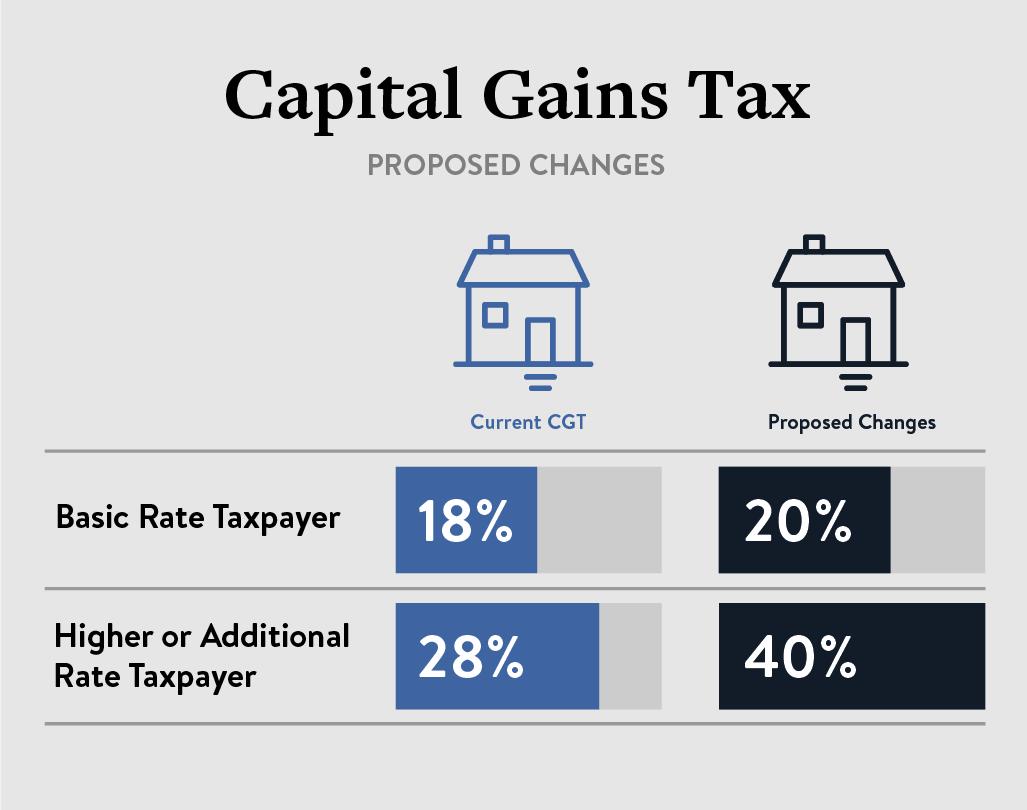In a groundbreaking move that is sending ripples through the cryptocurrency landscape, the Czech Republic has announced the abolition of capital gains tax on Bitcoin held for a minimum of three years. This significant policy shift not only positions the nation as a forward-thinking player in the global digital currency arena but also opens up new avenues for both local and foreign investors eager to explore the benefits of long-term cryptocurrency holdings. As countries around the globe grapple with the complexities of regulating digital assets, this decision reflects a growing recognition of the transformative potential of blockchain technology. In this article, we delve into the implications of this policy change, its potential impact on the Czech economy, and what it means for Bitcoin enthusiasts and investors alike.
Table of Contents
- Czech Republics Landmark Decision on Bitcoin Capital Gains Tax
- Understanding the Implications for Investors and the Crypto Market
- Strategies for Maximizing Benefits from the New Tax Policy
- Future Prospects for Cryptocurrency Regulation in the Czech Republic
- Q&A
- Concluding Remarks

Czech Republics Landmark Decision on Bitcoin Capital Gains Tax
The recent decision by the Czech Republic to abolish capital gains tax on Bitcoin held for a minimum of three years marks a significant shift in the country’s approach to cryptocurrency. This progressive move not only positions the Czech Republic as a favorable destination for crypto enthusiasts and investors but also aligns with a growing trend among nations recognizing the importance of digital assets. By eliminating this tax burden, the government aims to incentivize long-term investment in Bitcoin, encouraging holders to consider the asset as a legitimate financial venture rather than mere speculation.
This policy change is expected to stimulate various economic benefits, including:
- Increased Investment: The removal of capital gains tax can attract both domestic and foreign investors looking to capitalize on the growing cryptocurrency market.
- Enhanced Stability: Encouraging long-term holding can lead to a more stable market with less volatility associated with short-term trading.
- Innovation Growth: A friendlier regulatory environment may foster innovation in fintech and blockchain technology within the country.
| Time Held | Capital Gains Tax |
|---|---|
| Less than 3 years | Applicable |
| 3 years or more | Exempt |

Understanding the Implications for Investors and the Crypto Market
The recent decision by the Czech Republic to abolish the capital gains tax on Bitcoin held for over three years carries significant implications for both local and international investors. This groundbreaking policy not only enhances the attractiveness of cryptocurrency as a long-term investment, but it also reinforces the growing acceptance of digital assets within traditional financial frameworks. Investors can now view Bitcoin not merely as a speculative asset, but as a legitimate component of their financial portfolios that can yield tax-free returns after a designated holding period. Such a shift could stimulate increased demand, driving up valuations and engendering a more robust market environment.
Furthermore, this regulatory change is likely to encourage more investors to enter the crypto market, fostering innovation and potentially leading to increased entrepreneurial activities related to blockchain technology. With the absence of capital gains tax, the Czech Republic might attract a wave of crypto enthusiasts, traders, and startups looking to capitalize on this favorable investment climate. In addition to promoting local investment, it may also position the Czech Republic as a global hub for cryptocurrency, galvanizing international interest. The ripple effects of this legislation could redefine the landscape of crypto investing, influencing policy discussions and tax regimes in other jurisdictions.

Strategies for Maximizing Benefits from the New Tax Policy
To take full advantage of the recent decision to abolish the capital gains tax on Bitcoin held for more than three years, individuals and businesses should consider adopting a strategic approach to their investments. First, long-term holding is key; maintaining ownership of your Bitcoin for the stipulated duration not only shields you from potential tax obligations but also allows for the compounding nature of investment gains. Additionally, it’s smart to diversify your cryptocurrency portfolio, balancing Bitcoin with other digital assets to minimize risk while maximizing potential rewards. This tactic not only hedges against market volatility but positions your overall portfolio to benefit from a variety of growth opportunities.
Moreover, leveraging financial planning tools can provide enhanced clarity and guidance through this transition. Analyzing past performance data and future market predictions can help in making informed decisions. Keep track of your investments with dedicated software, which provides insights on your Bitcoin’s value over time, as well as anticipated fluctuations. Consider creating a simple reference table to monitor your holdings:
| Investment Date | Amount (BTC) | Current Value (CZK) | Holding Period (Years) |
|---|---|---|---|
| January 2021 | 0.5 | 250,000 | 2.5 |
| March 2020 | 1.0 | 500,000 | 3.5 |
| June 2019 | 0.75 | 375,000 | 4.5 |
Consolidating these strategies allows for a more holistic management of your digital assets, ensuring that you are well-positioned to reap the benefits of this favorable tax policy change. As the market matures and regulations evolve, staying informed and adaptable will be paramount to safeguarding and growing your cryptocurrency investments.

Future Prospects for Cryptocurrency Regulation in the Czech Republic
The recent decision to abolish the capital gains tax on Bitcoin held for a minimum of three years marks a significant turning point for cryptocurrency regulation in the Czech Republic. This progressive move could spark a wave of investment and innovation in the digital currency sector, enticing both local and international players. As the regulatory landscape continues to evolve, several potential outcomes may shape the future of cryptocurrencies in the Czech Republic, including:
- Increased Investment: The removal of the tax barrier may encourage greater participation from institutional investors.
- Enhanced Legitimacy: A more favorable tax environment could help to formalize the cryptocurrency market, which may attract regulatory oversight aimed at protecting investors.
- Entrepreneurial Growth: Startups and established companies could explore innovative blockchain solutions without the fear of punitive taxation.
Furthermore, as neighboring countries adopt varying regulatory stances on cryptocurrency, the Czech Republic could position itself as a regional hub for digital currency activities. This presents an opportunity for the government and regulatory bodies to craft a comprehensive framework that balances innovation with the need for consumer protection. Possible next steps include:
| Focus Area | Potential Actions |
|---|---|
| Consumer Protection | Implement clear guidelines for cryptocurrency trading to mitigate fraud. |
| Taxation Framework | Consider broader tax incentives for digital asset investments. |
| International Cooperation | Engage with EU regulatory bodies to harmonize cryptocurrency regulations. |
Q&A
Q&A: Czech Republic Abolishes Capital Gains Tax on Bitcoin Held for Over Three Years
Q: What recent change has the Czech Republic made regarding Bitcoin taxation?
A: The Czech Republic has officially abolished the capital gains tax on Bitcoin and other cryptocurrencies if they have been held for a minimum of three years. This new policy aims to encourage long-term investment in digital currencies.
Q: Why did the Czech government decide to implement this change?
A: The decision to abolish the capital gains tax on long-held Bitcoin is part of a broader strategy to foster a more attractive regulatory environment for cryptocurrencies. By encouraging long-term investment, the government hopes to stimulate innovation and economic activity within the digital asset sector.
Q: How does this new rule compare to tax regulations in other countries?
A: Many countries impose capital gains tax on cryptocurrency profits, often taxing short-term holdings at higher rates. The Czech Republic’s three-year holding requirement is relatively unique, positioning the country as a potentially appealing hub for crypto enthusiasts and investors compared to places with stricter tax regimes.
Q: Are there any conditions or limitations to this new tax law?
A: Yes, the key condition is that the Bitcoin must be held for at least three years to be exempt from capital gains tax. This means that if an investor sells their Bitcoin before the three-year period is over, they will still be liable for the applicable capital gains tax on any profits made from the sale.
Q: What implications does this have for existing Bitcoin holders in the Czech Republic?
A: For existing Bitcoin holders, this change offers a significant incentive to hold onto their investments longer. It could potentially alter their investment strategies, encouraging a more patient approach rather than speculative trading.
Q: How might this decision impact the cryptocurrency market in the Czech Republic?
A: By eliminating taxes for long-term holders, the Czech government is likely to bolster the cryptocurrency market. Increased investment could lead to greater liquidity, more robust trading activity, and potentially attract international investors looking for favorable conditions.
Q: What are the broader implications for cryptocurrencies globally?
A: The move by the Czech Republic could inspire other countries to rethink their tax policies surrounding digital currencies. As governments aim to regulate and encourage the growing crypto market, we may see a trend towards more lenient taxation frameworks in various jurisdictions.
Q: Is this policy expected to have any challenges or criticisms?
A: While the policy is generally viewed positively, some critiques may arise regarding the notion that it could disproportionately benefit wealthier individuals who are more likely to invest in cryptocurrencies. Additionally, regulators may be cautious about potential loopholes or abuses stemming from a lack of taxation.
Q: What should investors keep in mind moving forward?
A: Investors should carefully monitor any updates regarding this policy, as tax regulations can evolve. It is also important for them to keep comprehensive records of their holdings and transactions to ensure compliance with existing laws while taking advantage of the new long-term investment incentives.
Concluding Remarks
the Czech Republic’s decision to abolish capital gains tax on Bitcoin held for a minimum of three years marks a significant shift in the nation’s approach to cryptocurrency regulation. This move not only places the country at the forefront of progressive digital asset policies but also reflects a growing recognition of the importance of fostering innovation within the financial sector. As investors and crypto enthusiasts alike navigate this new landscape, the implications of this legislation could encourage longer-term investment strategies and stimulate further interest in blockchain technologies. The coming years will undoubtedly reveal how this change influences the Czech Republic’s economy and its position in the global cryptocurrency market. For now, it appears that the era of greater clarity and opportunity in the world of Bitcoin has officially begun.

https://t.me/s/atom_official_casino
В джунглях азарта, где любой ресурс пытается заманить заверениями легких выигрышей, казино рейтинг лучших
является именно той ориентиром, которая ведет сквозь заросли рисков. Игрокам ветеранов да новичков, кто устал от пустых посулов, это инструмент, дабы увидеть настоящую rtp, как ощущение выигрышной фишки в пальцах. Без ненужной ерунды, лишь надёжные площадки, там rtp не только показатель, а ощутимая фортуна.Подобрано на основе яндексовых запросов, словно паутина, что ловит самые актуальные веяния в рунете. В нём нет пространства про шаблонных фишек, всякий момент как ставка на игре, где подвох раскрывается немедленно. Игроки знают: в рунете тон разговора с сарказмом, в котором юмор притворяется под намёк, помогает обойти обмана.В http://www.don8play.ru этот рейтинг находится как открытая раздача, подготовленный на игре. Посмотри, коли нужно почувствовать ритм подлинной азарта, обходя обмана да неудач. Игрокам кто знает тактильность приза, он будто иметь карты на руках, вместо глядеть в монитор.